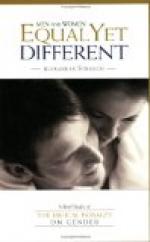The arrival of additional missionaries from America—Mr. and Mrs. Hough—in the Autumn of 1816, for a time greatly cheered and encouraged them. But fresh trials were in store for them. Mr. Judson had embarked for the province of Arracan; and when they were daily looking for his return, a vessel arrived from the port to which he had sailed, bringing the disheartening tidings that neither he nor the vessel in which he had sailed had been heard of there. While, tortured by suspense on Mr. Judson’s account, new terrors alarmed the mission family. Mr. Hough was ordered to the court-house, and detained there for days under a threat that “if he did not tell all the truth in relation to the foreigners, they would write with his heart’s blood.” Not understanding the language of his accusers, he was unable to plead his own cause, and he had no male friend to do it for him. Had Mrs. Judson, in this extremity, allowed herself to be absorbed in her own sorrow, or yielded to timidity, Mr. Hough would probably have suffered a long and rigorous confinement, if indeed he had escaped with his life. But undaunted by the odium, or even danger, that might accrue to herself, she, in violation of court etiquette, presented herself at the palace with a petition in Mr. Hough’s behalf. The viceroy, without manifesting any displeasure at the breach of etiquette, ordered Mr. Hough to be set at liberty.
Six months of painful suspense passed, and yet no tidings of Mr. Judson. That dreadful scourge, the cholera, was raging, and they were alarmed by rumors of war. Mr. Hough resolved to remove his family to Bengal, and urged Mrs. Judson to accompany them. She says: “I have ever felt resolved not to make any movement till I hear from Mr. Judson. Within a few days, however, some circumstances have occurred which have induced me to make preparations for a voyage. There is but one remaining ship in the river; and if an embargo is laid on English ships, it will be impossible for Mr. Judson—if he is yet alive—to return to this place.” Therefore she yielded to the solicitations of Mr. and Mrs. Hough, and embarked with them. But, reviewing all the conditions of the case as the vessel slowly made its way down the river, it became clear to her mind that whatever were the dangers of her position at Rangoon, yet there was her post of duty. Once convinced of what was duty, this heroic woman was not to be deterred from it by dangers, however formidable. Her resolution was taken; and, having prevailed upon the captain to send a boat up the river with her, she returned alone to the mission-house. The wisdom of her decision was proved in a short time by the safe return of Mr. Judson. Later, when failing health necessitated a change of climate, Mrs. Judson showed herself as well adapted to moving gracefully in cultivated and refined society as she was to contending with adversity and danger in a heathen land.
Her eloquent appeals, both in England and America, in behalf of the perishing millions of the East, and her history of the Burmese Mission, prepared during her visit to the United States, stirred up missionary zeal in the heart of Protestant Christendom, and gave an impetus to the cause of missions that has gone on accelerating to the present time.




